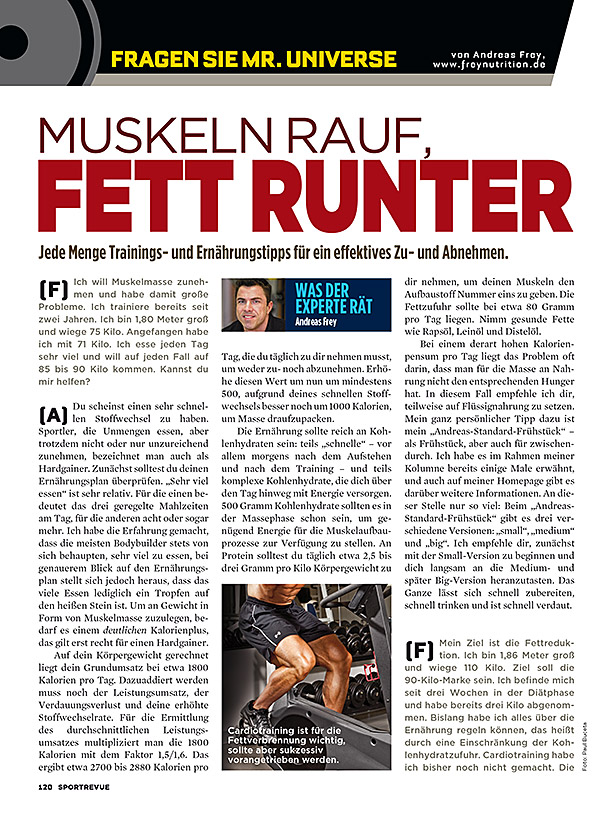TRAINING AND NUTRITION TIPS FOR EFFECTIVE WEIGHT GAIN AND LOSS.
ANSWER

Based on your body weight, your basal metabolic rate is around 1800 calories per day. You also need to add your energy expenditure, digestive loss and your increased metabolic rate. To determine your average energy expenditure, multiply the 1800 calories by a factor of 1.5/1.6. This results in around 2700 to 2880 calories per day that you need to consume every day in order to neither gain nor lose weight. Now increase this value by at least 500, or better yet by 1000 calories due to your fast metabolism, to put on some mass.
Your diet should be rich in carbohydrates: some "quick" - especially in the morning when you get up and after training - and some complete carbohydrates that provide you with energy throughout the day. You should eat 500 grams of carbohydrates during the mass phase to provide enough energy for the muscle building process. You should consume around 2.5 to 3 grams of protein per kilo of body weight every day to give your muscles the number one building material. Your fat intake should be around 80 grams per day. Eat healthy fats like rapeseed oil, linseed oil and safflower oil.If you want to increase your weight gain even further, I can recommend the product MEGA-GAIN highly recommend. 1-2 MEGA GAIN shakes per day provide a decent calorie boost, which effectively contributes to weight and muscle building.
WHY CARDIO TRAINING IS CRUCIAL IN A DIET.
So far I've been able to control everything through diet, that is, by limiting my carbohydrate intake. I haven't done any cardio training yet. However, fat loss has come to a standstill at the moment. What can you recommend?
ANSWER
Your pulse should be between 140 and 160 beats per minute so that your metabolism can increase. Without such a high pulse, your metabolism remains almost unchanged and only a minimal fat burning effect occurs during the training phase. With a high pulse, however, you can increase your metabolism and burn fat even beyond the aerobic unit ("afterburn effect"). You can gradually increase the cardio, starting with two 30-minute sessions per week to four or five 60-minute sessions per week. The maximum should be seven 60-minute sessions per week - more is not necessary for a successful diet phase.










